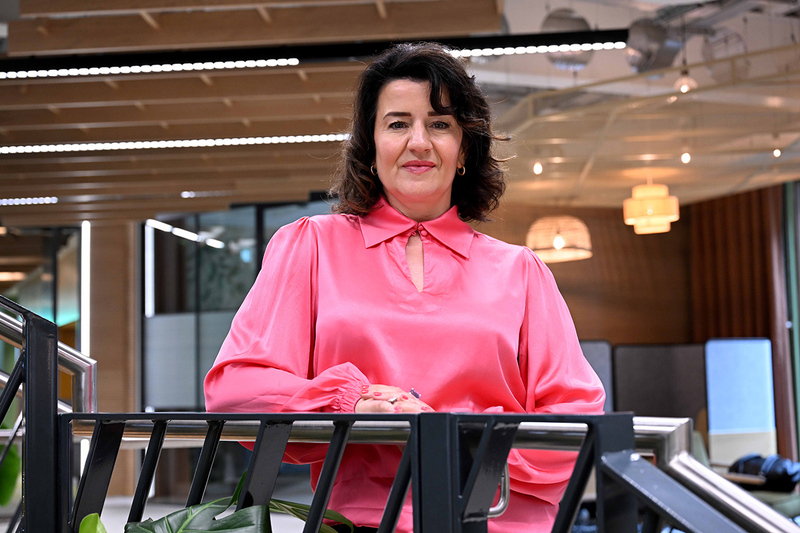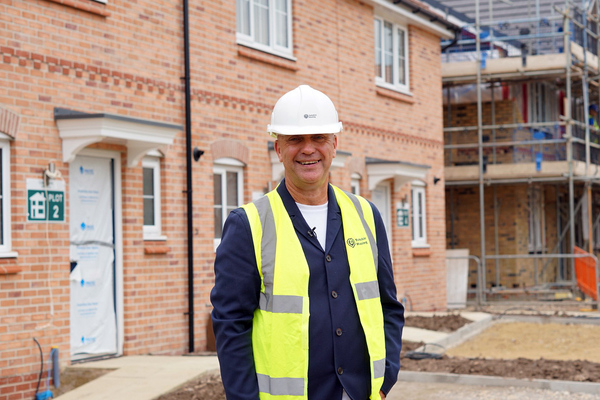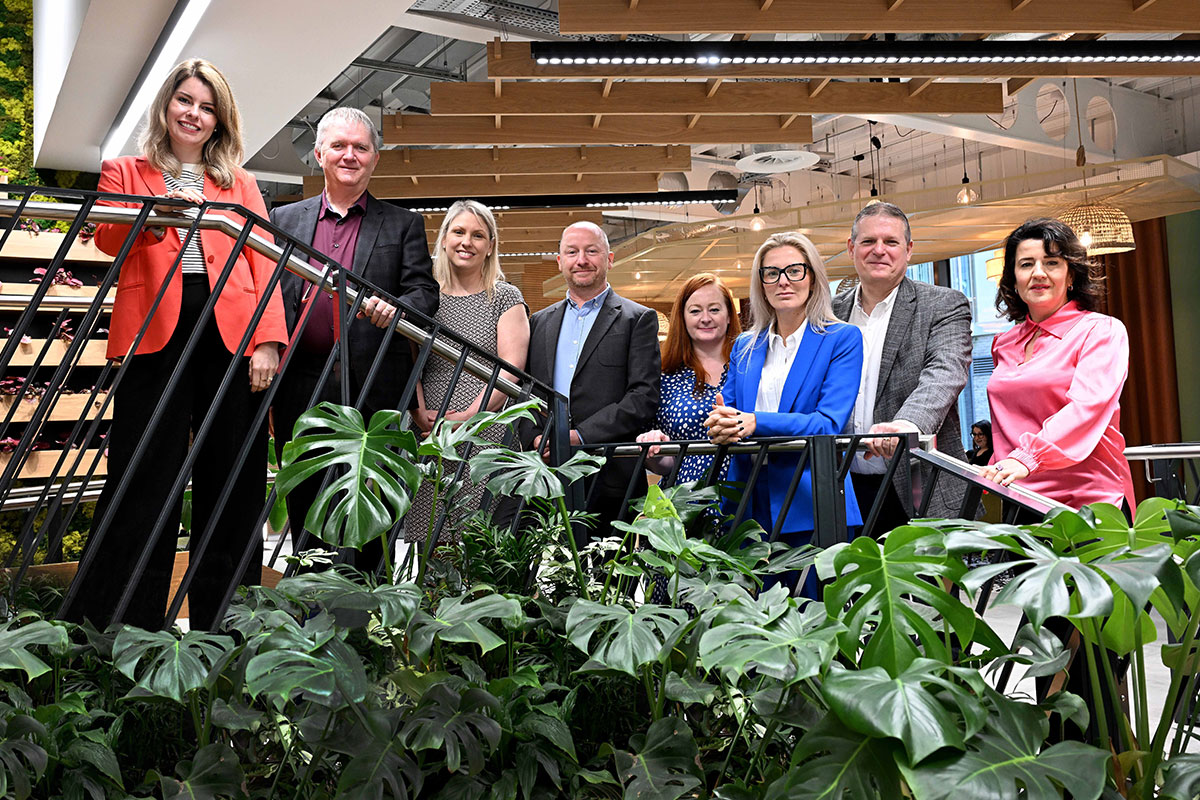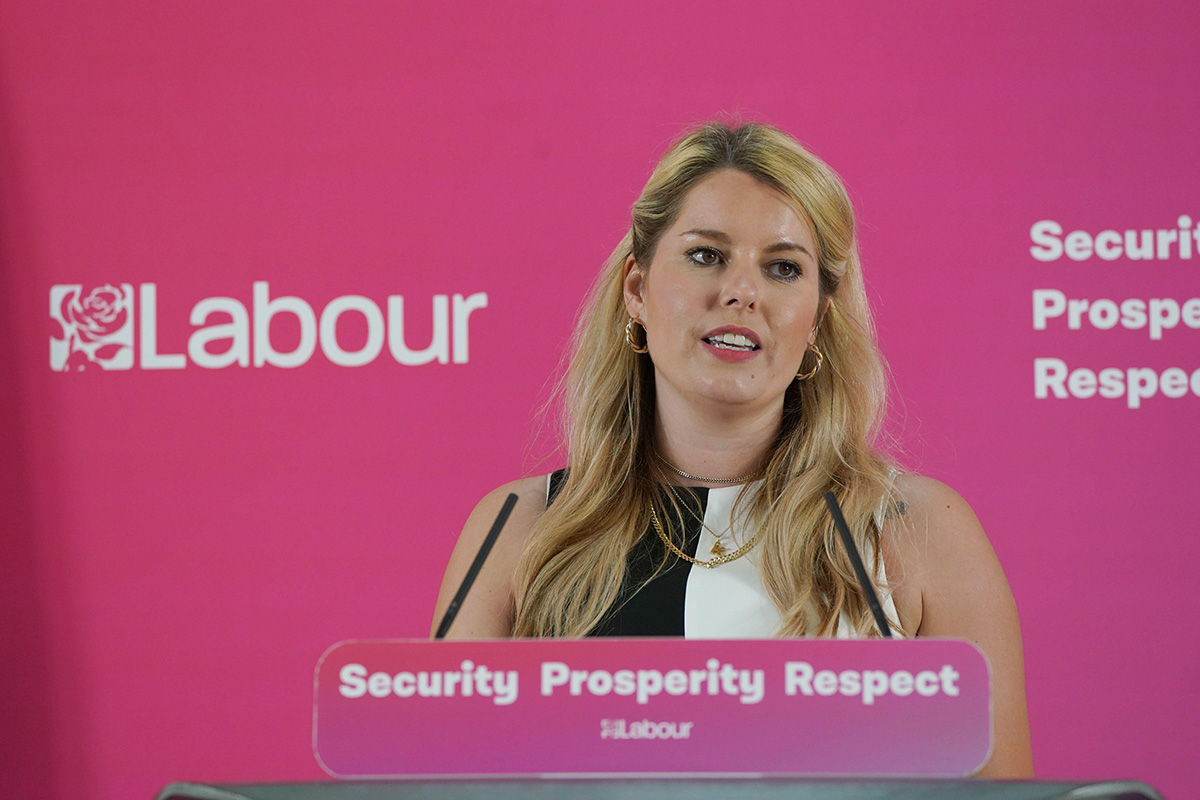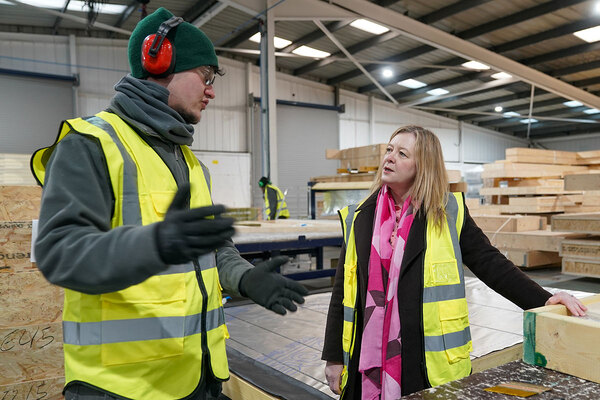You are viewing 1 of your 1 free articles
‘The North really needs that voice’: 50 years of the Northern Housing Consortium
2024 marked the 50th anniversary of the Northern Housing Consortium. Chief executive Tracy Harrison talks about her proudest achievements with Inside Housing editor Martin Hilditch – and what the future holds for the North’s housing providers
“It’s a bigger chunk of my life than I ever anticipated spending in any organisation, which I guess speaks to what a nice organisation it is and the great work that it does.”
Tracy Harrison, chief executive of the Northern Housing Consortium, is in a reflective mood. She is speaking to Inside Housing as the organisation she has run since 2018 (and worked in for the past 18 years), celebrates a significant milestone – it’s 50th anniversary.
We have met in the Newcastle head office of one of its member housing associations, Home Group, where a meeting of the North East Housing Partnership, for which the consortium acts as secretariat, has just taken place. With real powers over housing being devolved to various regions across the North of England, it feels like an appropriate time to both reflect on the consortium’s successes in acting as a voice for the sector in the North over the past 50 years, but also on its plans for the future.
When the consortium started out, it had one member of staff – its current longest-serving staff member, executive assistant Lynda Redshaw, has worked there for 33 years. Today there are 42 staff members on the team and it works to represent housing associations, councils and ALMOs across the North of England.
“I think we are a completely different organisation, even to the one I joined in 2006,” Ms Harrison states. “I think we have gone from an organisation that people always liked and felt loyal to, to one that I think is genuinely influential, important and relevant. And something that the North really needs – that voice of housing.”
Ms Harrison credits her predecessor, Jo Boaden, for making huge strides in modernising the consortium “to make it more professional, more focused and more serious, and to build back up member relations”.
Ms Harrison took over the reigns at the consortium at a time when it was very firmly looking to build and demonstrate its influence to members. A perception survey of members shortly before she took charge found a membership that was enthusiastic about the consortium – but revealed a perceived gap that she and her team have sought successfully to close.
“The members told us at that time, ‘We feel very loyal to you, we like you, but we’re maybe not entirely convinced how much impact you have,’” she says. “I’m really picking the negatives out of what we were told, because if you do a perception survey and you’re not going to look for the negatives, there is not much point, is there? So, what I have tried to do is be very focused on demonstrating the impact that we have. Some of which was about doing more and a lot of it was just about communicating more effectively to membership the stuff that we were already doing.”
In the past, Ms Harrison said the organisation had perhaps been “quietly authentic” and influential. It has since been taking a more vocal approach.
“What members told us in that 2018 survey was we really need a louder voice for housing in the North,” she says. “So, we’ve tried to amplify that voice and also to point at our victories a bit more. The reality is that the dial never moves because of one organisation or one voice, it is always a number of different voices working together and providing evidence that makes a difference. But we are now, I think, more inclined to say, ‘Yes, we played a part in that.’”
What have those victories included? Straight away, Ms Harrison points to the consortium’s work on decarbonisation.
“I think that we really led sector efforts on net zero,” she states. “I think we were talking about that before other organisations were. The aim initially was about helping build awareness among members of what needed to be done and making the argument to government about how the sector was ideally placed to delver these programmes at scale and at pace, and build the supply chain, skills and capacity which you could then use to tip in and deal with the private rented sector and owner-occupation.”
That effort saw the organisation build strong partnerships with the Department for Energy Security and Net Zero (DESNZ) and its predecessor, the Department for Business, Energy and Industrial Strategy (BEIS).
“It was great to be the regional voice sitting on the Social Housing Decarbonisation Fund consultative panel and have strong relationships with the minister,” she states. “I would point to that as an example of where I think we have really made a difference.” Certainly, the consortium’s members have been well placed to take advantage of the fund, with 23.7% of Wave 2.1 of the fund going to the North. The consortium has produced detailed work outlining the potential to drive growth and jobs in the North via delivery of sustainable housing this year. Its Warm Homes, Green Jobs research – based on interviews with 50 people from housing associations, councils, contractors and combined authorities – set out how the sector could take the lead on delivering warmer, greener homes across the North, delivering 77,000 jobs in the process.
“The most important thing is we are driven by what the members want us to do”
It was in this field too that the consortium produced one of the most interesting pieces of work led by tenants in recent years. Its Social Housing Tenants’ Climate Jury saw 30 social housing tenants meet to discuss how climate change impacts on their lives. It produced a set of recommendations for the sector about how tenants and social landlords could work together to tackle climate change in their homes and neighbourhoods. The report remains a must-read for housing associations and councils, and is an exemplar of how tenants can drive and influence policy formation in the sector.
“I think it was a groundbreaking piece of work for the sector, the way we approached it, not paying lip service and genuinely putting residents’ voice right at the heart. The beauty of that has been there is an energy and a momentum that there is no way the tenants involved would have allowed to stop. That programme has rolled on again, and I think it shows the sector at its best. The Heartwarming Homes programme [a partnership with Tpas and Placeshapers, that creates a toolkit about working with residents to help sustainability programmes run smoothly] came directly out of that.”
Other notable pieces of work this year include research focused on how the consortium’s members could help government deliver its targeted 1.5 million new homes over the next five years. That identified capacity for up to 320,000 new homes on brownfield land in the North. In order for these to be delivered, it asked government to devolve brownfield funding to combined authorities and be more flexible with funding requirements (additionality rules often mean areas in need of regeneration struggle to attract government funding).
If that’s the recent past, what of the future?
“There are emerging areas where we can play a really useful role,” Ms Harrison states. “The devolution agenda has obviously grown.”
The consortium is already playing an active role when it comes to devolution. As mentioned, it is the secretariat of the North East Housing Partnership, a group of 17 housing association, councils and ALMOs, that formed in 2023 to support the region’s new mayoral combined authority to deliver the social housing needed in the region.
“The role we are playing in the North East is effectively a consultancy role, where we’re providing a secretariat and it’s something we’ve been approached by other areas to say is this something you could potentially support us with. We are well placed with having local authorities, housing associations and ALMOs within the membership. We’ve also provided opportunities for the chairs and vice-chairs of different housing partnerships across the North to come together and compare notes. I think there is real value in having the ability to pull all of that together.”
A new corporate plan awaits next year, as the consortium looks to build for the next 50 years. But one thing won’t change, Ms Harrison adds: “The most important thing is we are driven by what the members want us to do.”
Recent longform articles by Martin Hilditch
As Inside Housing celebrates its 40th anniversary, we want to identify and build the profile of the outstanding individuals who will shape the housing sector over the next 40 years. Editor Martin Hilditch sets out the ambitions of the publication’s new 40 Under 40 list
Could adjustable housing be the big idea that helps the UK thrive in the 21st century?
Late last year, Dr Philip Graham won the Thinkhouse Early Career Researcher’s Prize for his paper arguing that adjustable housing could be the answer to some of the UK’s housing problems. Martin Hilditch met him to find out why
G15 chair Fiona Fletcher-Smith: ‘If I was in the police, I would be very worried about social unrest linked to housing’
Fiona Fletcher-Smith has serious concerns about where the housing crisis is going unless the government changes its approach. With an election approaching, she talks to Martin Hilditch about how the G15 will lobby the main parties – and why the G15’s days as a brand are numbered
Sign up for our development and finance newsletter
Already have an account? Click here to manage your newsletters
